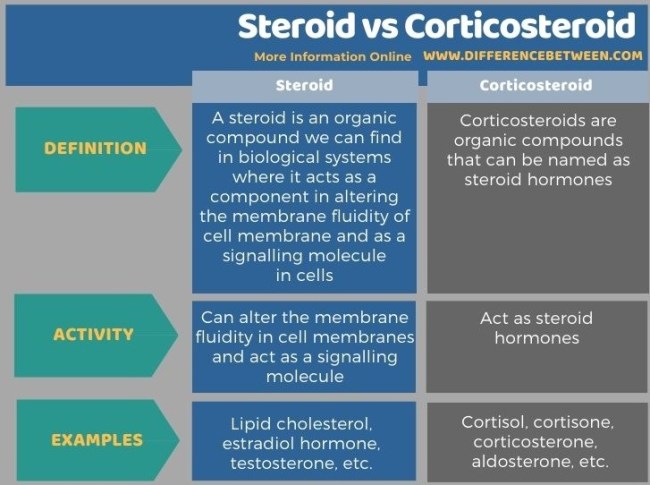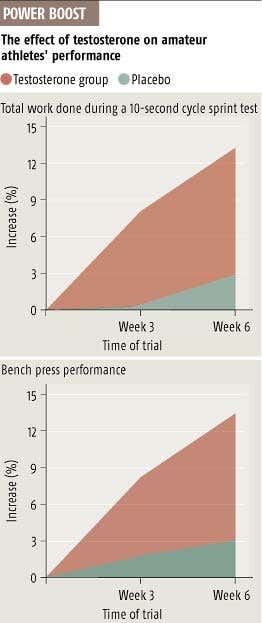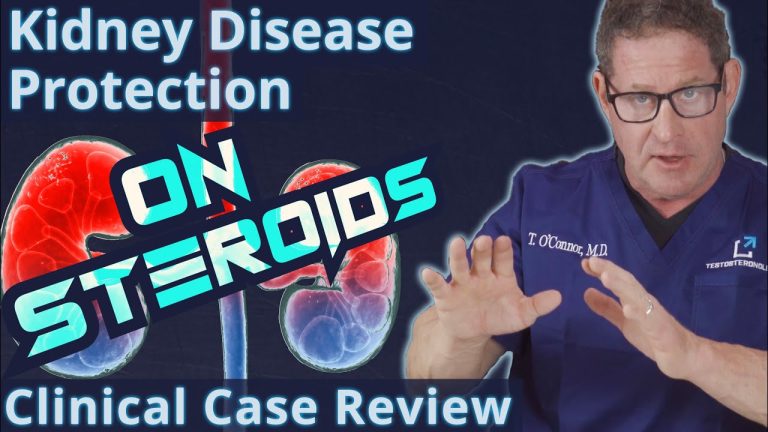Ow Do Steroids Affect The Brain And Emotions
Steroids have been in use for decades, particularly in the world of sports and bodybuilding. While they are known for…
Steroids have been in use for decades, particularly in the world of sports and bodybuilding. While they are known for their ability to enhance physical performance, the impact of steroids on the brain and emotions is not widely discussed. However, there is growing evidence that steroids have a significant impact on the brain, including changes to mood, behavior, and cognitive function.
Research suggests that steroids can affect the brain in a number of ways, including altering neurotransmitter levels and affecting the activity of certain brain regions. This can lead to changes in mood and behavior, including increased aggression, irritability, and depression. In this article, we will explore the ways in which steroids affect the brain and emotions, and the potential risks associated with their use.

How Do Steroids Affect the Brain and Emotions?
Steroids are synthetic substances that mimic the effects of testosterone. They are commonly used by athletes to enhance their performance and build muscle mass. However, the use of steroids can have a significant impact on the brain and emotions of the user. In this article, we will explore the effects of steroids on the brain and emotions.
1. Steroids and the Brain
Steroids can have a significant impact on the brain. They can alter the levels of neurotransmitters, which are chemicals that transmit signals in the brain. The use of steroids can increase the levels of dopamine, which is a neurotransmitter associated with pleasure and reward. This can lead to feelings of euphoria and increased motivation.
However, the long-term use of steroids can also have negative effects on the brain. It can lead to a decrease in the levels of serotonin, which is a neurotransmitter associated with mood regulation. This can lead to feelings of depression and anxiety.
The Benefits of Steroids
Steroids can have several benefits, including:
- Increased muscle mass
- Improved athletic performance
- Improved recovery time
The Vs of Steroids
However, steroids also have several downsides, including:
- Increased risk of heart disease
- Increased risk of liver damage
- Increased risk of depression and anxiety
2. Steroids and Emotions
Steroids can also have a significant impact on emotions. They can lead to feelings of aggression and irritability, also known as “roid rage.” This can be particularly problematic in individuals who already have a tendency towards aggression.
The use of steroids can also lead to mood swings and emotional instability. Users may experience periods of euphoria followed by periods of depression and anxiety.
The Benefits of Steroids
Steroids can have several benefits, including:
- Improved confidence and self-esteem
- Improved motivation
- Increased energy levels
The Vs of Steroids
However, steroids also have several downsides, including:
- Increased risk of aggression and irritability
- Increased risk of mood swings and emotional instability
3. Steroids and Addiction
Steroids can also be addictive. Users may become dependent on the feelings of euphoria and increased motivation that steroids provide. This can lead to a cycle of use and abuse that can be difficult to break.
The Benefits of Steroids
There are no benefits to steroid addiction.
The Vs of Steroids
The downsides of steroid addiction include:
- Increased risk of physical and mental health problems
- Financial and legal problems
- Difficulties in personal relationships
4. Steroids and Mental Health
Steroids can have a significant impact on mental health. They can increase the risk of depression, anxiety, and other mental health conditions. This is particularly true for individuals who use steroids for extended periods of time.
The Benefits of Steroids
There are no benefits to the negative impact of steroids on mental health.
The Vs of Steroids
The downsides of steroids on mental health include:
- Increased risk of depression and anxiety
- Increased risk of other mental health conditions
5. Steroids and Brain Damage
The long-term use of steroids can also lead to brain damage. This is because steroids can cause the death of brain cells and reduce the amount of blood flow to the brain. This can lead to a range of cognitive problems, including memory loss and difficulty focusing.
The Benefits of Steroids
There are no benefits to the brain damage caused by steroids.
The Vs of Steroids
The downsides of steroids on brain damage include:
- Increased risk of cognitive problems
- Increased risk of memory loss
- Reduced ability to focus
6. Steroids and Sleep
Steroids can also have a significant impact on sleep. They can interfere with the body’s natural sleep cycle, which can lead to insomnia and other sleep problems. This can have a negative impact on both physical and mental health.
The Benefits of Steroids
There are no benefits to the negative impact of steroids on sleep.
The Vs of Steroids
The downsides of steroids on sleep include:
- Increased risk of insomnia
- Increased risk of other sleep problems
- Reduced physical and mental health
7. Steroids and Cardiovascular Health
Steroids can also have a significant impact on cardiovascular health. They can increase the risk of heart disease, stroke, and other cardiovascular problems. This is particularly true for individuals who use steroids for extended periods of time.
The Benefits of Steroids
There are no benefits to the negative impact of steroids on cardiovascular health.
The Vs of Steroids
The downsides of steroids on cardiovascular health include:
- Increased risk of heart disease and stroke
- Increased risk of other cardiovascular problems
8. Steroids and Liver Damage
Steroids can also have a negative impact on liver health. They can increase the risk of liver damage and disease. This is particularly true for individuals who use steroids orally.
The Benefits of Steroids
There are no benefits to the negative impact of steroids on liver health.
The Vs of Steroids
The downsides of steroids on liver health include:
- Increased risk of liver damage and disease
- Increased risk of liver cancer
9. Steroids and Reproductive Health
Steroids can also have a negative impact on reproductive health. They can reduce the production of testosterone, which can lead to a range of problems, including infertility and impotence.
The Benefits of Steroids
There are no benefits to the negative impact of steroids on reproductive health.
The Vs of Steroids
The downsides of steroids on reproductive health include:
- Increased risk of infertility and impotence
- Reduced libido
10. Conclusion
In conclusion, the use of steroids can have a significant impact on the brain and emotions of the user. While steroids can have some benefits, the negative impact on physical and mental health can be severe. It is important for individuals who are considering using steroids to weigh the potential benefits against the significant risks.
Frequently Asked Questions
What are steroids?
Steroids are a type of organic molecule that have a characteristic structure of four rings of carbon atoms. They are commonly used for their anti-inflammatory and muscle-building properties. There are two main types of steroids: corticosteroids and anabolic-androgenic steroids (AAS).
Corticosteroids are used to treat a variety of medical conditions, including asthma, arthritis, and autoimmune diseases. AAS, on the other hand, are synthetic versions of testosterone and are used to enhance athletic performance and increase muscle mass.
How do steroids affect the body?
Steroids can have both positive and negative effects on the body. Corticosteroids can help to reduce inflammation and swelling, and are therefore useful in the treatment of a range of medical conditions. AAS, however, can have a range of negative side effects, including acne, hair loss, infertility, and an increased risk of heart disease and liver damage.
Both corticosteroids and AAS can also affect the brain and emotions. They can cause mood swings, irritability, and aggression, and can also lead to depression and anxiety.
What is the mechanism of action of steroids in the brain?
Steroids can affect the brain by binding to specific receptors in the brain cells. In particular, AAS can bind to androgen receptors in the brain, which can lead to changes in mood and behavior. Steroids can also affect the levels of neurotransmitters in the brain, such as dopamine and serotonin, which can further influence mood and emotions.
Research has also shown that the use of steroids can lead to changes in the structure and function of the brain, particularly in areas that are involved in reward, motivation, and decision-making. These changes can persist long after steroid use has stopped, and may contribute to the development of addiction and other mental health problems.
Can steroids cause addiction?
Yes, steroids can cause addiction. Research has shown that the use of AAS can lead to changes in the brain that are similar to those seen in other types of addiction, such as drug and alcohol addiction. These changes can lead to compulsive drug-seeking behavior and a loss of control over drug use.
It is important to note that not everyone who uses steroids will develop an addiction. However, the risk of addiction is higher in people who use steroids at high doses or for long periods of time, as well as those who have a history of addiction or other mental health problems.
What are the long-term effects of steroid use on the brain and emotions?
The long-term effects of steroid use on the brain and emotions are not yet fully understood, but research suggests that they can be significant. Steroid use has been linked to a range of mental health problems, including depression, anxiety, and suicidal thoughts.
Studies have also shown that steroid use can lead to changes in the structure and function of the brain, particularly in areas that are involved in reward, motivation, and decision-making. These changes can persist long after steroid use has stopped, and may contribute to the development of addiction and other mental health problems.
How do steroids affect your muscles— and the rest of your body? – Anees Bahji
In conclusion, steroids have a significant impact on the brain and emotions. As these compounds enter the bloodstream, they can cross the blood-brain barrier and affect various regions of the brain responsible for mood regulation, decision-making, and impulse control. This can lead to changes in behavior, including aggression and depression.
Furthermore, long-term steroid use can result in serious mental health problems, including anxiety disorders and psychotic episodes. These effects can be particularly harmful for young people whose brains are still developing, and they can have lasting consequences that persist even after steroid use has ceased.
Therefore, it is important for individuals who are considering using steroids to carefully weigh the potential risks and benefits. Seeking medical advice and support can also be crucial in managing any negative effects on mental health and emotional well-being. Ultimately, education and awareness about the impact of steroids on the brain and emotions can help prevent the harmful consequences associated with their misuse.






